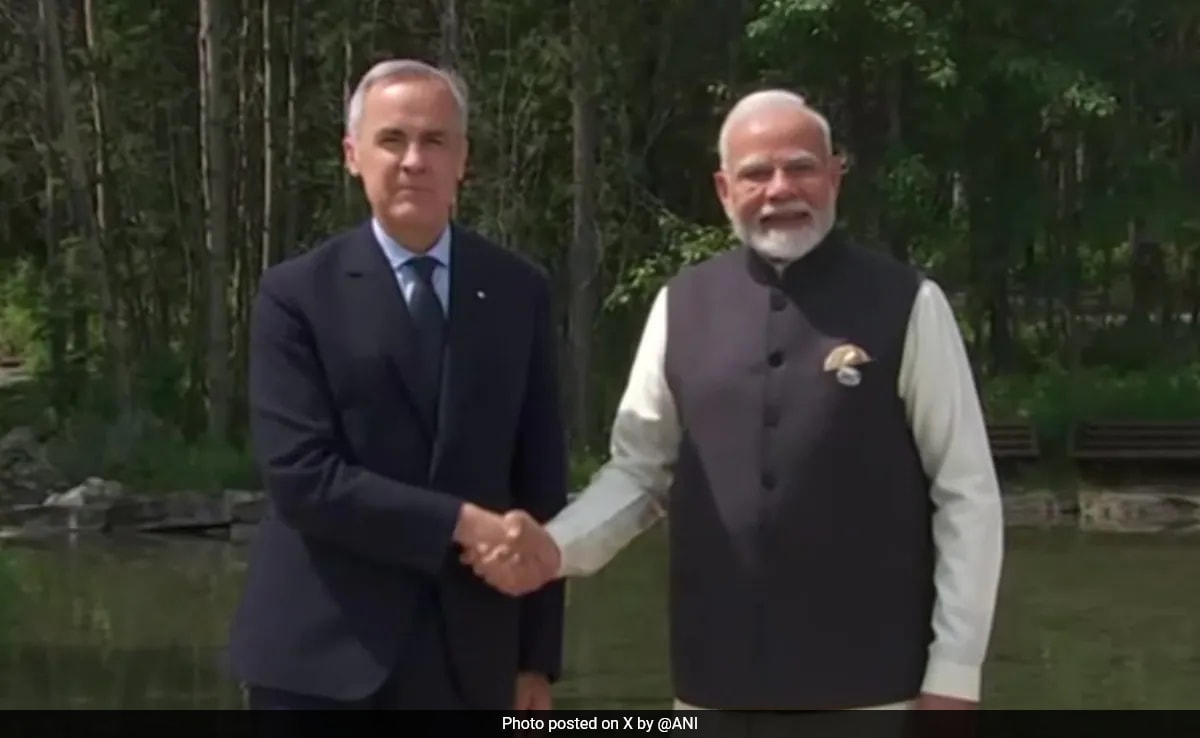

The 2025 G7 Summit in Kananaskis, Alberta, Canada, is underway, with Canadian Prime Minister Mark Carney playing host to leaders from the world's major economies. The summit, taking place from June 15-17, is set against a backdrop of escalating global tensions, including the ongoing conflict between Israel and Iran, the Russia-Ukraine war, and persistent trade disputes.
Prime Minister Carney extended a warm welcome to Indian Prime Minister Narendra Modi, who is attending the summit as an invited outreach guest. This marks Modi's sixth consecutive appearance at the G7 summit, underscoring India's growing importance on the world stage. According to Chinmoy Naik, the acting Indian High Commissioner to Canada, Modi's participation highlights India's significance in global affairs. Modi is expected to share his views with G7 leaders on critical global issues, focusing on energy security, technology, and innovation, particularly the intersection of AI and energy, as well as quantum-related matters. Bilateral meetings are also anticipated on the summit's sidelines.
The G7 summit's agenda is packed with pressing issues. Protecting communities and the world, building energy security and accelerating the digital transition, and securing the partnerships of the future are the core priorities. However, discussions are expected to be dominated by the conflict between Israel and Iran, which has seen increased military actions in recent days. The potential for the United States to become directly involved in the conflict is a major concern.
Adding to the complexity, former U.S. President Donald Trump is attending the G7 summit. Trump's presence is expected to be tense, given his history of disrupting previous G7 meetings and his "America First" trade policies. Trade remains a significant point of contention, particularly with Trump's administration having announced levies on goods from various countries, including Canada. Mexico's President Claudia Sheinbaum Pardo is also in attendance, seeking to address trade issues and renegotiate the North American free trade agreement.
Despite the focus on immediate crises, the G7 leaders are also addressing longer-term challenges. Prime Minister Carney has emphasized the importance of fortifying critical mineral supply chains and leveraging artificial intelligence and quantum computing to drive economic growth. Discussions on climate change, global health, and sustainable development are also anticipated.
On the sidelines of the summit, Prime Minister Carney met with Ukrainian President Volodymyr Zelenskyy, outlining a significant $4.3 billion support package for Ukraine. This includes $2 billion for weapons and $2.3 billion in loans to help rebuild Ukraine's infrastructure. Canada has also announced new sanctions targeting Russia's shadow fleet and energy revenues.
The G7 represents 44 percent of global GDP, but only 10 percent of the world's population, making the decisions made at the summit of vital importance.